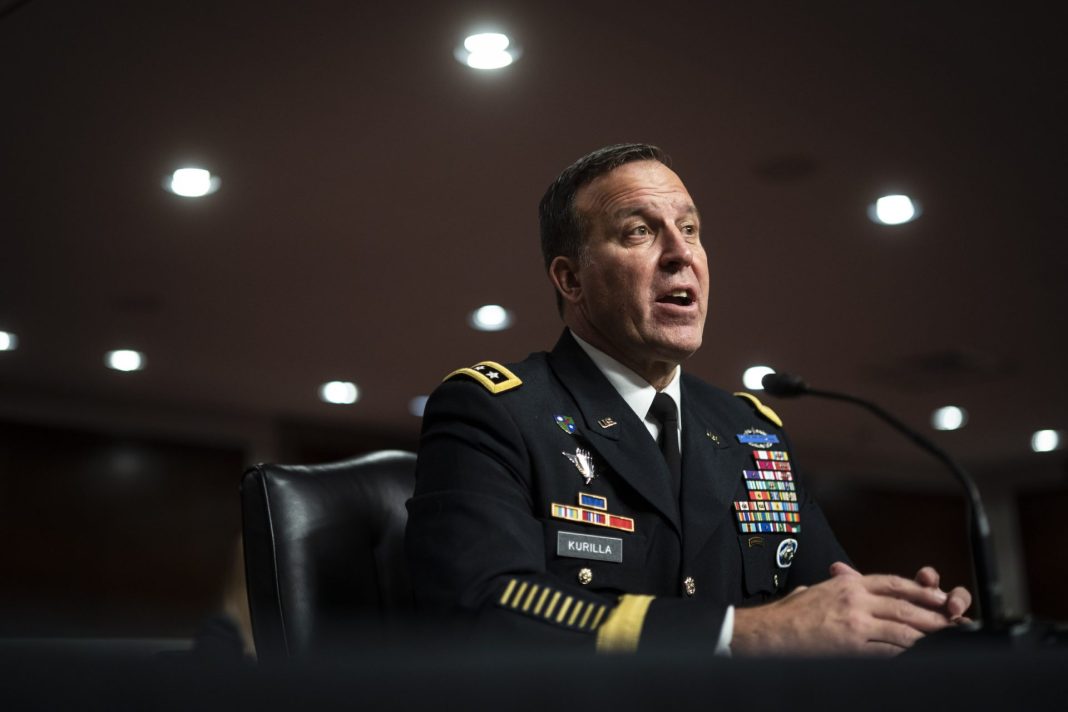Speaking during a US House Armed Services Committee hearing on Thursday, Kurilla said he is “very concerned” about the “global implications” of the partnership between the three countries.
“Collectively, Iran, Russia, and China are strengthening their relationships and fostering a chaotic landscape favorable to their exploitation,” he added.
“The ramifications of this partnership will have global implications.”
He also referred to Iran’s capability to produce drones and export crude oil despite US sanctions.
“What we see is Iran reliant on China and Russia is reliant on Iran. Iran sells 90% of its oil, all US sanctioned, to China,” Kurilla continued.
Iran, China and Russia have over the past years forged strategic relations and strengthened their cooperation in various fields.
The partnership between the three countries could herald a new multipolar world order, intended to replace the current unipolar American-led order.
Earlier this month, Iran, Russia and China held joint naval drills in the Gulf of Oman, marking the fifth such exercise since 2019.
Officials said the goal of the “Marine Security Belt 2024” drills was to strengthen the security of international maritime trade, combating piracy and maritime terrorism, among others.
The exercises took place against the background of an unprecedented US and Western naval presence in West Asia and signaled a strengthened tripartite alliance amidst evolving global geopolitical dynamics.
Featuring advanced missile systems and new warships, the exercises sent a clear message to the West and regional players about the trio’s readiness to safeguard their interests and assert their influence in critical maritime corridors.
The collaboration among China, Iran, and Russia within the realm of military exercises underscores a mutual desire to enhance maritime security while also challenging the existing global power structures led by the US.
The drills came just a week after NATO’s Nordic Response exercises, the most expansive NATO drills since the Cold War ended in 1991. Nordic Response incorporated military participation of NATO’s newest member states Sweden and Finland.
